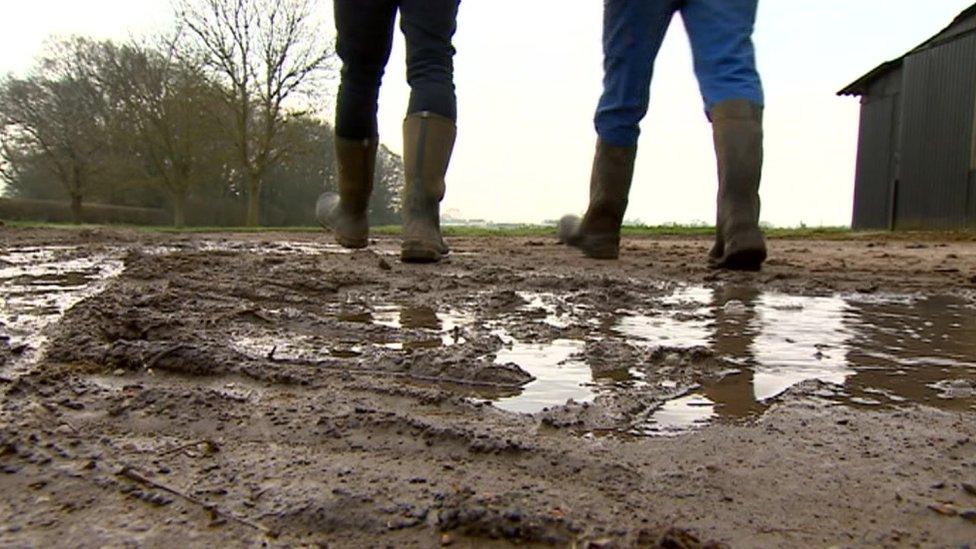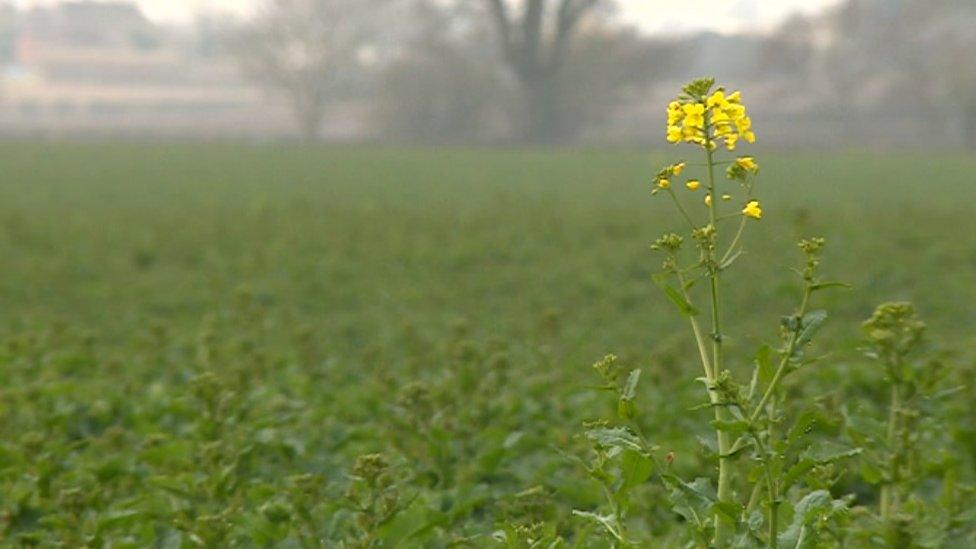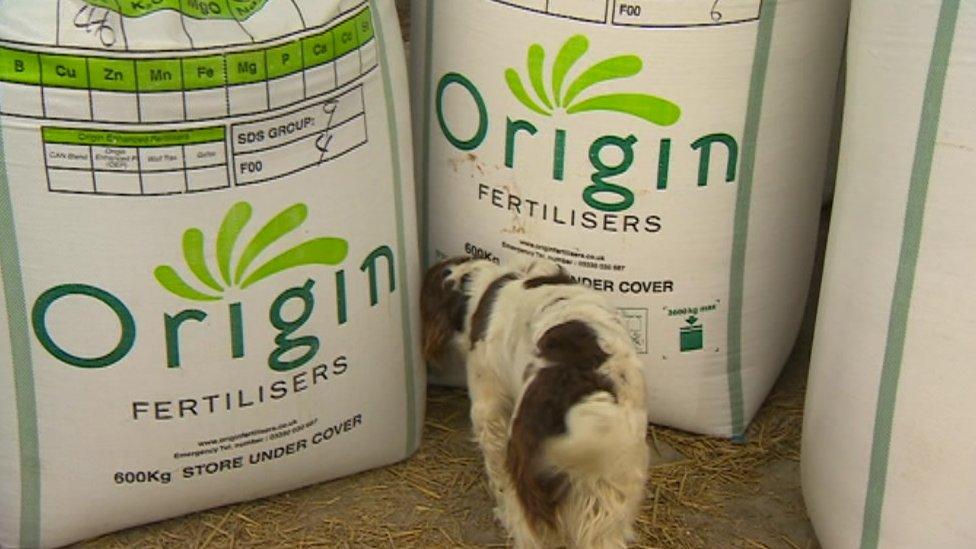Soggy Spring causing a real headache for our farmers
- Published

This Staffordshire farm has seen over 100mm of rain in March, that’s twice the usual amount for them
Actually soggy doesn't really do it justice. Depending on where in the Midlands you ask the question this is the wettest March for six or even eight years and it tops a pretty miserable start to 2018. All of this is having a huge impact on every sort of farming.
This week I've been talking to farmers about the weather and the impact this snow, endless rain and cold have been having since the start of the year. No farmer has emerged unscathed.
For horticulture and arable farmers the ground is often too wet to work. You can't take heavy machinery out on to wet ground without damaging the soil. So orchards are untended and crops remain unplanted or undeveloped.

The soggy spring means this single oilseed rape plant is the only one growing as it should
Cuckoo barley
On a farm outside Wolverhampton I saw green fields of oil seed rape that should be a good two foot taller and bright yellow by now. Seed potatoes remain unplanted and bare unploughed fields should be turning green with barley shoots.
Farmers like to plant spring barley well before they hear the first cuckoo of spring. If the returning cuckoos beat them to it they actually call the result "cuckoo barley", external and it has a reputation for being pretty ropey.
At the moment the problem for arable farmers is that they are a month behind with everything. The longer-term impact will likely be lower yields as the time for the crop to grow will be shorter.
Also any crops will have shallower roots as they've had less time to grow. So if things do warm up in the summer or we even enter a period of drought, arable crops will be less able to cope.

On a north Herefordshire farm the dog sniffs the big bags of fertiliser that should be on the fields by now. But it’s just too wet to get the tractors out
Fodder bank
For livestock farmers all this rain has caused real problems for lambing, with young lambs finding it hard to thrive in this weather.
For farmers looking to calve at this time of year they're finding it's just too wet to turn cattle out from their winter quarters. This in turn is pushing up the price of straw for bedding and feed in general as farms run out before they can get animals on to spring grass. The National Farmers' Union has reopened its Fodder Bank, external to try and help.
So it's not been a great start to the year, actually it wasn't a great end to last year either.
Online, you can find people saying, external two "extreme springs" in six years is a worrying trend and a sign of volatility our government needs to think about as part of its post-Brexit agricultural policy.
What is certain is that while warmer, drier weather will eventually start to arrive, all our farmers will be dealing with the fallout of our soggy spring for the rest of the year.